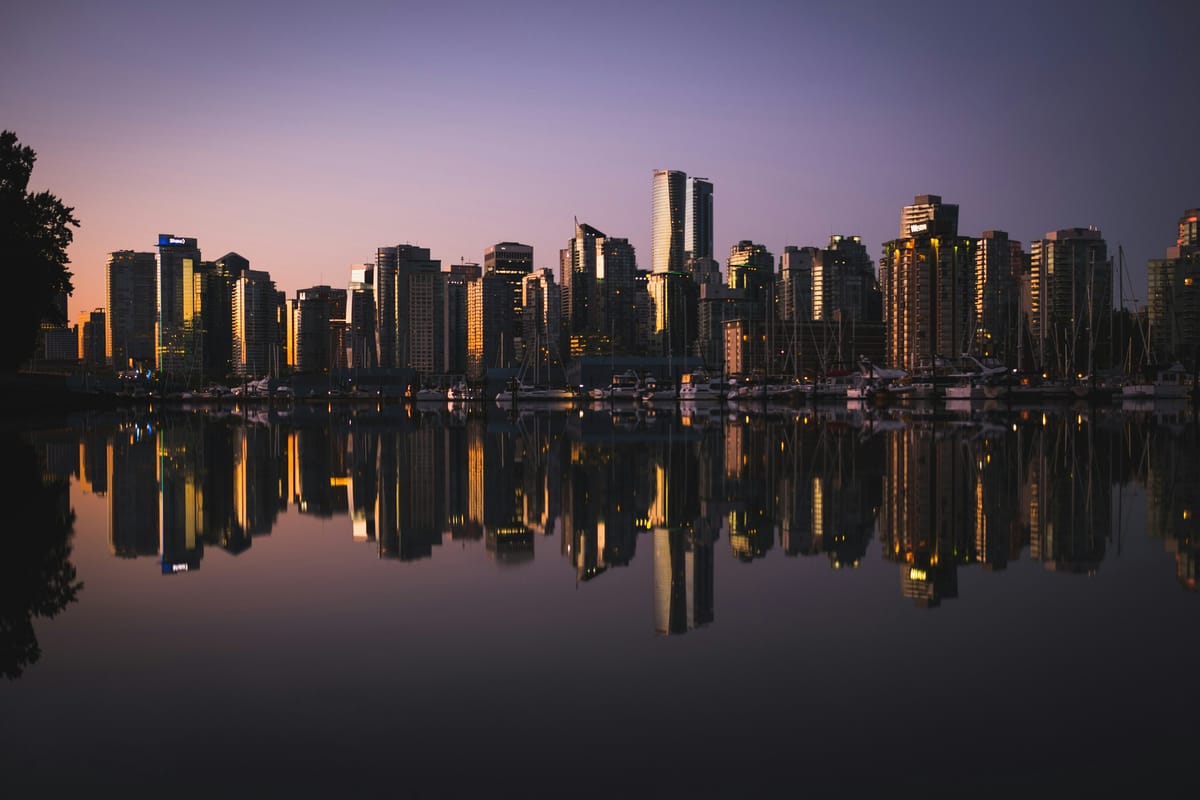Notes on Web Summit Vancouver
Will it be good or bad? Yes.

Last month, Web Summit, the organization behind the Collision Conference in Toronto, revealed they would move the event to Vancouver in 2025 and rebrand it to Web Summit Vancouver.
On June 12, the day the news broke, when it appeared BetaKit forced an early announcement out of the Web Summit team, #TechTwitter was buzzing.
But Sean Silcoff, a reporter for the Globe and Mail, linked on X to a story about a float plane and boat crash in Coal Harbour and quipped, "This is currently the top news story when you Google “Collision and Vancouver." Wry joke? Or was he making a point? Was the hysteria around this event very much a tech bubble phenomenon? Were regular people tuning in? The post, in a sense, asked, “Do Vancouverites-at-large care?”
I think they should. Multiple levels of government plan to spend up to $14 million to make the annual conference happen for three years. And so the question becomes if that much tax-payer money is being spent, what, exactly, is being bought?
Painkillers or vitamins
In entrepreneurship, ‘painkiller’ products solve a very immediate need – a must-have. A ‘vitamin’ product is non-essential, but it can provide significant added benefits or may address long-term, less immediate issues.
From my point of view, Web Summit is a vitamin. If you recognize that, you can temper your expectations for what it means and how it will affect actual venture builders.
According to Brenda Bailey, minister of jobs, economic development and innovation, one of the reasons the province is making this investment is the view that BC struggles "with attracting the kind of investment an ecosystem at the level of talent and innovation we have should attract."
That’s not really true. Or, perhaps it is, depending on how you fudge the numbers. But if you simply position our share of Canada’s population, 5.6 million (13.8%) of 41 million, against our share of venture capital investment last year, $1.2 billion (18%) of $6.9 billion, you could say that we’re punching above our weight.
Plus, as Minister Bailey added on LinkedIn, Vancouver has one of the largest startup communities in Canada, the fastest tech job growth in North America (according to CBRE), and companies like Jane and Clio doing north of $60 million and $100 million, respectively, in ARR.
So Web Summit is not a remedy for an ailing ecosystem. It's more Omega 3 than Tylenol 3.
So what can this type of event do for us? Why cheer for Web Summit in addition to (not against) a homegrown event like Innovate West. Here’s my analogy.
Yelp and Michelin: Local versus global stars
Consider a brand new pizza parlour that’s been set up by a locally-known restaurant group. The product is great. People come from all over town to try it. Even if you’re not that into pizza, you might check out it because it’s just around the block. Everyone’s talking about it. But you’re friend, from the province next door – he’s never heard of it. The pizza parlour’s market is limited to people who know the owners and those who live in the neighbourhood. It will take forever to scale, and its impact on the broader region is limited. Innovate West (or any local initiative) is the pizza parlour of the tech conference industry – a fun event hosted by great people that most of us locals will check out at least once.
Now imagine René Redzepi, the world’s most important chef, shows up one day and says to the local government, “Give me a bunch of money and I will do a three-year popup event in your city.” The government will take him up on the offer for many obvious reasons. When Redzepi opens his restaurant, everyone comes – not just locals, not just Canadians, but people from around the world. People who sometimes visit neighbouring provinces and states add Vancouver to their trip itinerary. Some people plan entire flights around this pop-up. They make a special journey, to use use Michelin Guide parlance. And what’s more, while they’re here, they spend money on lots of other things and discover parts of the city and society they previously were unaware of. They bring and spend net-new money. Then, they go back to their own countries and tell everyone they know about this incredible place they went to – in our case, Vancouver.
Have you figured out that Redzepi is Web Summit in this metaphor? A spectacle to draw attention (and money) to Vancouver’s economy.
Everyone wins here, right? Well, it depends on your point of view, and how things play out. There are many questions still left to be answered.
Evan McCann was the first to articulate my initial thoughts when the news broke. “Pumped for the 10 downtown Vancouver hotels to be $2000+ a night,” he posted on X.
I checked a few downtown hotels recently, and at the time of blogging, a basic room at a basic hotel like the Hyatt is a nauseating $732 per night. A shoebox at the St. Regis will cost you $659 an evening.
That’s what happens when the hotel inventory is already inadequate and the province torpedoes the Airbnb supply.
Where is everyone going to stay? (And if we take a second to think post-conference – assuming we make thousands of people fall in love with Lotus Land – where will future residents move to in our "impossibly unaffordable" city?)
Will Web Summit (and events like the World Cup) help solve problems, illuminate or exacerbate them?
How will Web Summit involve local people in the event? Will we see true homegrown startups on stage? (Thankfully, Casey Lau tells me yes.)
Will this major marketing activity make any difference when influential local and national tech voices are at such significant odds with the federal government on innovation policy?
And then there's the big question of message. Will Web Summit be the unicorn event that finally puts Vancouver's notoriously siloed tech community on the same page?
We’re bringing the world to Vancouver for a big show. What do we want to tell everyone?



